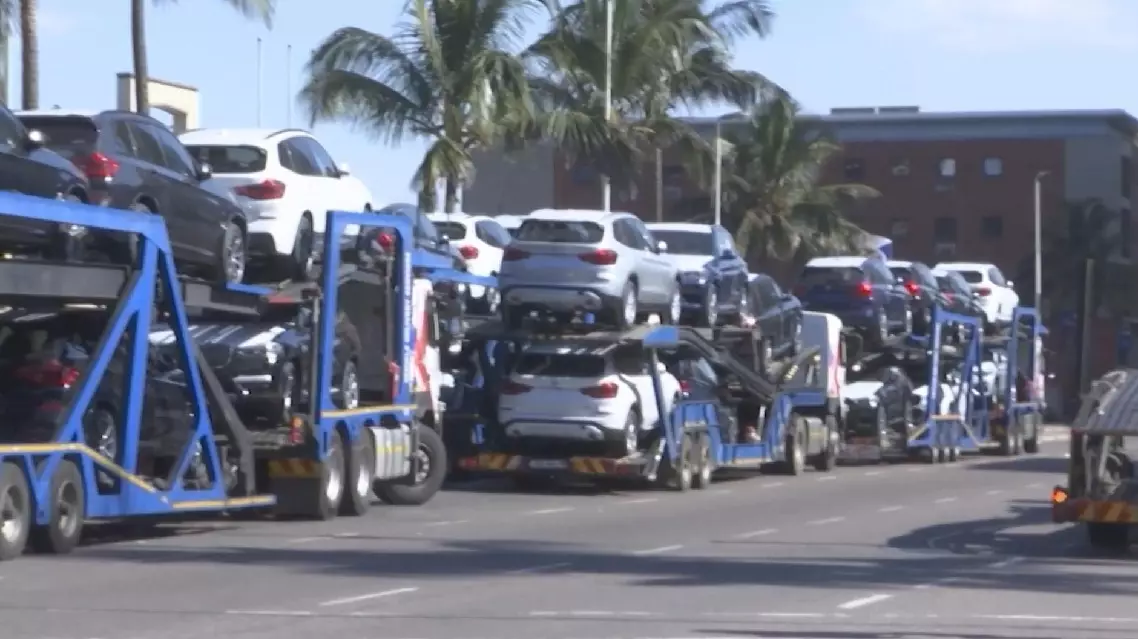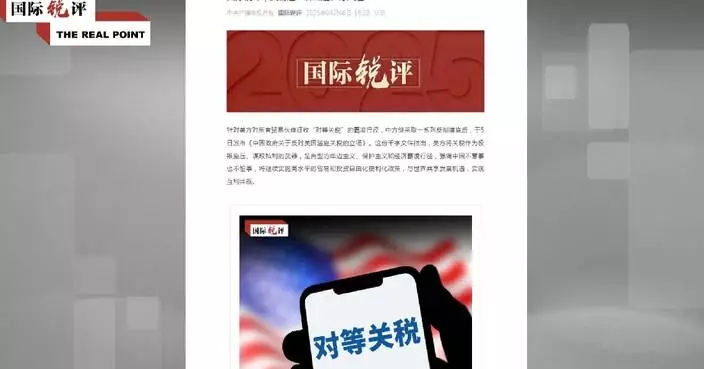Closing down TikTok would hurt the U.S. economy and devastate the livelihoods of numerous freelancers and influencers on the platform, said U.S. economist Anthony Chan, during an interview with China Global Television Network (CGTN).
In April, U.S. President Joe Biden enacted the law -- which only gave ByteDance 270 days to sell TikTok to a non-Chinese buyer. If ByteDance does not sell TikTok by Jan. 19, 2025, the law will require Apple and Google to remove TikTok from their app stores, leading to a ban of the app.
The TikTok ban, based on unfounded national security concerns due to its Chinese ownership, has drawn widespread criticism.
In May, TikTok sued the U.S. government to block the potential ban.
A U.S. federal appeals court on Friday upheld the law despite widespread opposition.
TikTok said in a statement on Friday that the ban was based upon inaccurate, flawed and hypothetical information, resulting in outright censorship of the American people.
Anthony Chan, former chief economist at JPMorgan Chase and Company, believes that the TikTok ban would hurt both freedom of speech in the United States and have economic consequences.
He mentioned that U.S. President-elect Donald Trump is also a user of TikTok with huge number of followers, and he once hailed TikTok's role as a good competitor of other social media platforms.
"It is no a secret that he said that in the past it's a good competitor of other social media platforms like Meta. So, as a result we should keep it. So, I think he could use his power in order to try to help TikTok gain a little bit more time. But let's not lose sight of the fact that there is that legal option that they can actually appeal to the Supreme Court. And there is no doubt that if you look at other decisions that are made by the Supreme Court, they don't differ that much from the references and the wishes of the president-elect. So that's another good thing that TikTok has on its side," said Chan.
The United States is one of TikTok's biggest markets with 170 million users, and many of them have been using the platform to make a living, not just for entertainment.
"You can easily make an economic case that closing down TikTok would hurt the U.S. economy, certainly hurt the ability of many of these freelancers and influencers to basically make a living. Many influencers make most of their money on TikTok as a social media outlet, and they like it so much that they would not like to have to go to the other media outlets where they are now entrenched. They have a good following. They're making money. They don't want to start all over in another platform," Chan stated.

Closing down TikTok would hurt US economy: economist

Closing down TikTok would hurt US economy: economist

Closing down TikTok would hurt US economy: economist
A 25 percent import tariff on all foreign-built vehicles entering the United States has raised serious concerns for manufacturers in South Africa.
Automotive giants like Mercedes and BMW have long used South Africa as a base for global exports -- but those plans may be shifting into reverse gear after the U.S. announced the punitive measures.
"If you take, for example, BMW, 97 percent of the X3 that we are producing in Rosslyn is exported out of the country. We only sell 3 percent in South Africa, and there's a huge number of those vehicles that also go into the U.S. So there are companies in South Africa that are purely here not because they are selling vehicles in South Africa; they are here to produce vehicles for the global market, and it's important for them to remain globally competitive," said Mike Mabasa, CEO of the National Association of Automobile Manufacturers of South Africa.
U.S. automaker Ford, which has deep roots in South Africa, is also in the crosshairs.
The company recently invested over 300 million U.S. dollars to upgrade its Silverton plant in Pretoria, South Africa, for the production of the world's only plug-in hybrid Ranger, which has just entered production but could face delays or restrictions.
"If an American citizen wants to buy specifically a Ford Ranger that is a plug-in hybrid, they can only place an order in South Africa, nowhere else in the world. So, that means, obviously, the capacity of Ford to be able to produce those vehicles in big volumes is going to be constrained, because Americans are going be looking at another Ford that is produced in another country, or even in the United States," said Mabasa.
South Africa has long enjoyed duty-free automotive exports to the U.S. under the African Growth and Opportunity Act, but that relationship now hangs in the balance.
A sharp shift in U.S. foreign policy threatens to derail an industry that employs thousands and contributes around 5 percent to the country's economy.
"We produce less than 1 percent of global automotive vehicles, so to say. So, in reality, the impact on us is likely to be more disproportionate than those of our peers that produce at the same level. And the risk is actually created -- a concentration risk -- in countries that have greater capacity and are building more; in those countries will be able to absorb some of this," said Parks Tau, South Africa's minister of trade and industry.
Amid growing concerns about overreliance on the U.S. market, Amith Singh, national manager for manufacturing at Nedbank Commercial Bank, emphasized the importance of tapping into regional trade opportunities.
"I think we need to make better use of some of our local agreements, our African continental agreements. How do we leverage that? How do we partner with the government and private sector to start benefiting the countries and the economies aside from the United States? So, those could be the catalyst to drive our localization projects; it could be what we need to drive the African economy as opposed to being completely reliant on the States (United States)," he said.
South Africa is for now standing firm in its decision not to retaliate against steep U.S. import tariffs, set to take effect in just a few days.
Officials in Pretoria acknowledge the challenges posed by the current U.S. administration but are pursuing a diplomatic approach in hopes of maintaining stable relations and preserving the African Growth and Opportunity Act.

US tariffs rock South Africa’s auto industry


















































